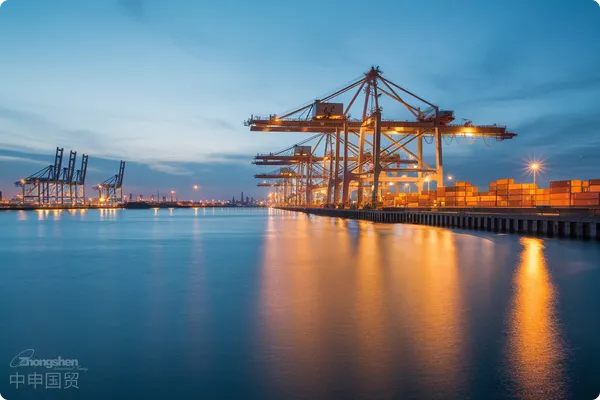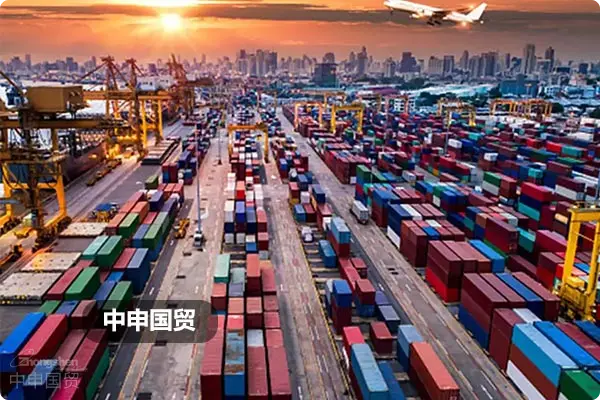- Shanghai Zhongshen International Trade Co., Ltd. - Two decades of trade agency expertise.
- Service Hotline: 139 1787 2118

In international trade, the export license is an important system used by many countries to control the export of specific goods. For Chinese enterprises, whether to apply for an export license needs to be comprehensively judged according to the specific category, form, and destination of the exported goods. The following is a detailed interpretation of the Chinese export license system to helpforeign tradepractitioners quickly master the key points.
I. Do You Need to Apply for an Export License?
According to the Catalogue of Goods Subject to Export License Administration (2024) issued by the Ministry of Commerce of China and the General Administration of Customs,only 43 types of goods were included in the scope of export license administration in 2024, and other goods (such as ordinary electromechanical products,Daily necessities, lamps, etc.) do not need to apply for a license when exporting.
Core Judgment Criteria:
- Whether the goods are in the control catalogue:Before export, it is necessary to check whether the goods belong to the 43 types of controlled goods (see the specific list below).
- Export destination:For some goods (such as live cattle, live pigs), exports to Hong Kong, Macao, or land border ports are exempt from the license.
- Form of Commodities: For example, silver must be in an unwrought or semi - manufactured state. Processed finished products may not be restricted.
II. Which Goods Need an Export License?
In 2024, the 43 types of goods subject to license management are mainly divided into the following categories:
2Classification Table of Goods Subject to Export License Management in 2024 (Full List of 43 Types)
| Category | Specific Commodity List |
|---|---|
| Agricultural products | Live cattle (except for exports to Hong Kong, Macao and land border ports) Live pigs (except for exports to Hong Kong, Macao and land border ports) Live chickens (except for exports to Hong Kong, Macao and land border ports) Wheat Corn Rice Licorice and licorice products Silk products (reeled silk, processed silk, etc.) Sugar (raw sugar, white sugar, etc.) |
| Energy Minerals | Coal Crude oil Refined oil products (gasoline, diesel, aviation kerosene, etc.) Rare earths (in the form of oxides, metals, etc.) Tungsten and tungsten products Antimony and antimony products Molybdenum and molybdenum products Phosphate rock Bauxite Magnesite Fluorite |
| Chemical Products | Ozone - depleting substances (CFCs, HCFCs, etc.) Paraffin wax Precursor chemicals Monitored chemicals |
| Strategic Materials | Nuclear materials and nuclear equipment Missiles and related items Military products (including dual - use items) Satellites and their components |
| Resource - based Commodities | Timber (logs, sawn timber, etc.) Charcoal Indium and indium products Germanium and germanium products Magnesium and its products Zirconium products Ephedra sinica and its products Nostoc flagelliforme |
| Other Special Items | Ancient books (books, documents, etc. before the Republic of China) Platinum (platinum or white gold) Silver (unwrought or semi - manufactured state) Motorcycles and their engines Automobiles and chassis Coke Silicon carbide |
Note:
- Exemption clause: No license is required for the export of live cattle, live pigs, and live chickens to Hong Kong, Macao, or land border ports. For some commodities (such as silver, rare earths), specific forms or usage restrictions need to be met.
- Dynamic adjustment: The catalog may be updated due to policy changes. It is recommended to check regularly.Original announcement of the Ministry of Commerce.
- Violation risk: For commodities in the export catalog that are exported without applying for a license, the customs will detain the goods and impose a fine. In serious cases, criminal liability may be incurred.
III. How to Apply for an Export License?
Applicable enterprises: All Chinese enterprises (including foreign - invested enterprises) engaged in the export of commodities in the catalog.
Application process:
- Confirm the commodity category: Check whether the commodity requires a license through the customs HS code or the Ministry of Commerce catalog.
- Prepare materials:
Business license of the enterprise,import and exportQualification certificate
Export contract, description of commodity technical parameters
Other special documents (for example, approval documents from the public security department are required for precursor chemicals) - Submit the application: Submit materials to the Ministry of Commerce or local commercial authorities (online processing is available).
- Review and issue the license: Generally, the review is completed within 5 - 10 working days. After passing, the Export License of the Peoples Republic of China will be issued.
- Customs clearance and release: Declare exports to the customs with the license. Export without a license will face fines or seizure of goods.
IV. Frequently Asked Questions
- How to quickly determine whether a commodity requires a license?
Log in to the official website of the Ministry of Commerce to query the Catalogue of Goods Subject to Export License Administration, or entrust a customs broker to assist in checking the HS code. - How long is the validity period of the license?
Usually 6 months. If it is not used after the expiration date, a new application is required. - What will happen if a commodity in the export catalog is exported without applying for a license?
The customs will not release the goods, and the enterprise may be fined up to 30% of the value of the goods. In serious cases, criminal liability will be pursued. - Does the export of processing trade require a license?
If the processed finished product belongs to the commodity in the catalog, a license still needs to be applied for.
V. Precautions
- Pay attention to policy dynamics: The export control catalog may be adjusted due to factors such as national security and resource protection. It is recommended to regularly consult the announcements of the Ministry of Commerce.
- Special trade methods: Export from bonded areas,Cross-border E-commerceetc. may be subject to different rules. It is necessary to consult the regulatory authorities in advance.
- Compliance of export destination: Some countries (such as countries under UN sanctions) may have additional import license requirements. It is necessary to confirm with overseas customers.
Summary
Whether an export license needs to be applied for depends on whether the commodity belongs to the 43 types of goods currently controlled in China. Enterprises can quickly judge by checking the catalog, confirming the commodity form and export destination. For commodities that require a license, be sure to apply in advance to avoid trade risks due to incomplete procedures. In a complex foreign trade environment, compliant operation is the core prerequisite for ensuring the smooth progress of transactions.
Related Recommendations
Knowledge Base
Contact Us
Email: service@sh-zhongshen.com
Related Recommendations
Contact via WeChat

? 2025. All Rights Reserved. 滬ICP備2023007705號-2  PSB Record: Shanghai No.31011502009912
PSB Record: Shanghai No.31011502009912








